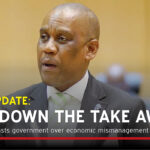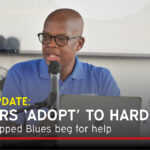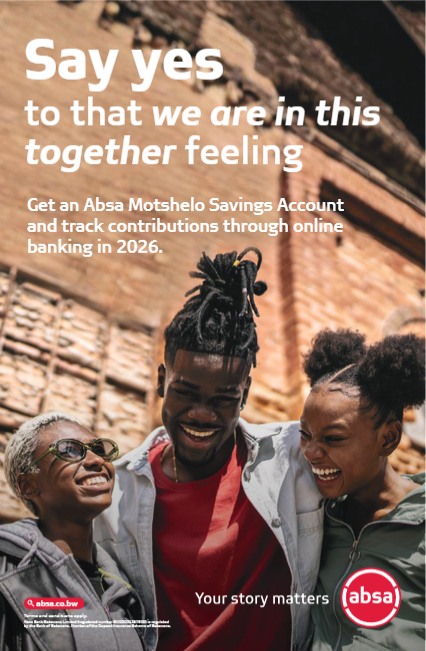In an urgent application filed before the High Court, Botswana’s largest alcohol distributor- Kgalagadi Breweries Proprietary Limited (KBL), has challenged President Mokgweetsi Masisi’s authority in shut down the liquor industry.
According to court papers dated 6 July, KBL has cited President Masisi alongside the Attorney General (AG) and the Director of Health Services in a case which is expected to be heard before Justice Tshepo Motswagole.
In the papers, KBL seeks the court to declare “unlawful and invalid as well as to review and set aside Government notice No.362 of 2021 issued in terms of the emergency powers act (CAP 22:04) as read with the emergency powers (Covid-19) regulations, 2020 and published by the Director of Health Services.”
KBL further asks the court to, in the meantime pending the final determination of the relief sought, to suspend the operation of the Government notice which has effectively suspended the sale of alcohol.
In an affidavit deposed by Brenno Kliger Diaz who is the Managing Director of KBL, he argued that Masisi has no authority to suspend the sale of alcohol.
The court papers read in part: “The crux of this application is wether the President acted lawfully when he issued Government notice No 362 of 2021 issued in terms of the Emergency Powers Act (CAP 22:04) as read with the emergency powers (Covid-19) regulations, 2020 decreeing a wholesale ban on the sale of alcohol in Botswana. This application is brought to challenge the lawfulness and validity of the impunged notice. The effect of this notice is to impose a total ban on liquor sales, including products manufactured and distributed by KBL.”
KBL in their urgent application further argue that regulation 30(G) empowers the Director of Health Services, in consultation with the President, to lift a restriction referred to in the regulations.
“It is submitted that there are jurisdictional requirements for the exercise of any power in terms of the regulations, including regulations 30G, in respect of that regulation the requirements are the Director of Health may reinstate a previously lifted restriction contained in the emergency regulations, b) the director must consult the President before exercising the power to reinstate the restriction c) the risks posed by Covid-19 must have increased,” futher reads KBL’s submission.
KBL believes the requirements named above have not been met and that the Director of Health Services was merely acting under instruction from the President when she imposed the alcohol ban, something they believe is unlawful.
KBL, in further stressing their point that requirements were not met when the Government’s notice to ban the sale of alcohol was imposed, further say the decision is irrational.
“The decision was to be exercised reasonably and or rationally. For a decision to be reasonable and rational it must be proportional. The decision must consider both the need for the drastic action and the possible use of less drastic or oppressive means to accomplish the end desired. This entails that the director, in exercising her powers reasonably or rationally, must consider whether public safety from the risks of Covid-19 can be obtained by means less drastic than an all out ban, which has the terrible consequences of potential loss of income (particularly those of lower income status who wholly depend upon the industry for support) and does not involve infringement of people’s rights to privacy and dignity recognised by the constitution,” KBL warns furhter stating there is no evidence that such exercise was undertaken.
Whilst KBL in their arguments acknowledge that Botswana, just like the rest of the world, is still crippled by the Covid-19 pandemic they believe this does not give absolute power for citizens to be deprived of their rights and dignity.
“This does not mean any restriction of the rights of citizens is lawful,” the argument reads in part.
KBL also stated that, as a consequence, they have had to send 95% of their staff home, majority of whom are on unpaid leave.
The case continues.
@sharonmathala
Sharonm@thevoicebw.com



















We support u KBL,is not about people who drink alcohol but employees,,they have to be a way of dealing with this rather than closing down which is affecting economy…
Be safe
Motivation is obviously financial using constitutional guaranteed rights to argue the merit. However Covid is deadly whether broke or not. Leadership takes the final responsibility nd is so constitutionally empowered to make the call on behalf of us all for our own protection even from ourselves esp us who make use of the bottle .
Should be an interesting case of constitutional rights vs constitutional powers ..
Sad reality